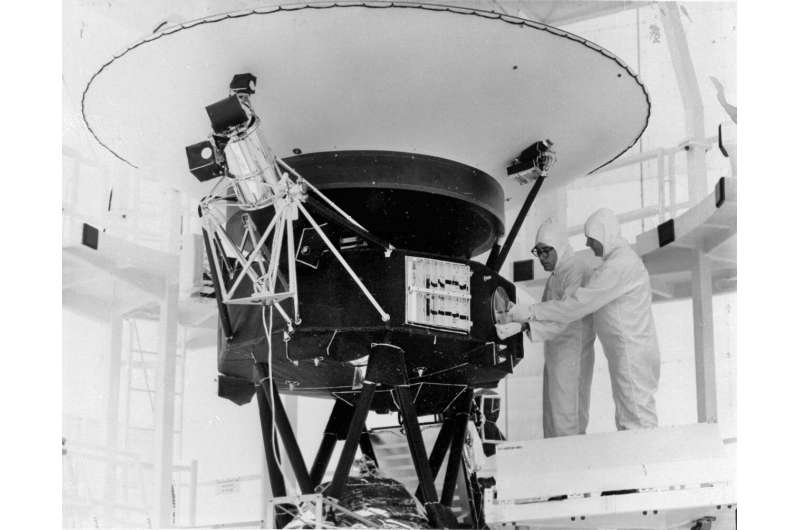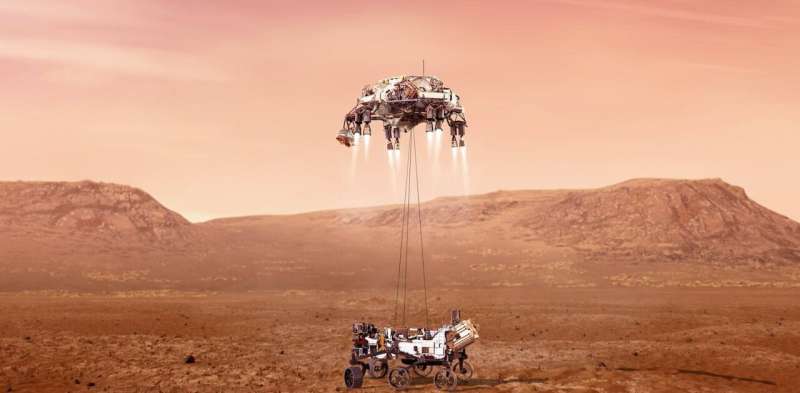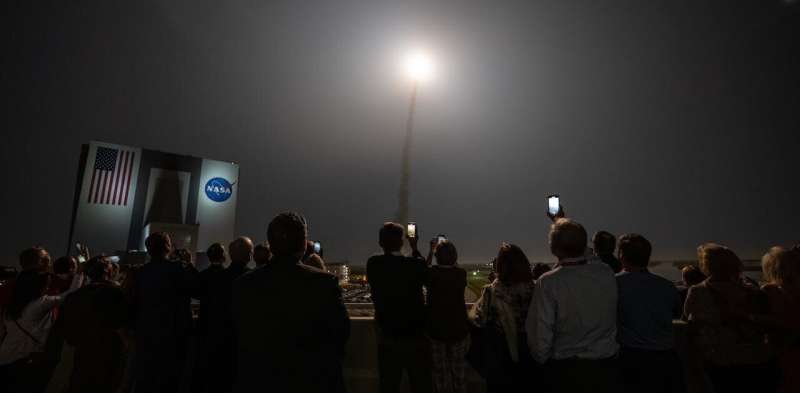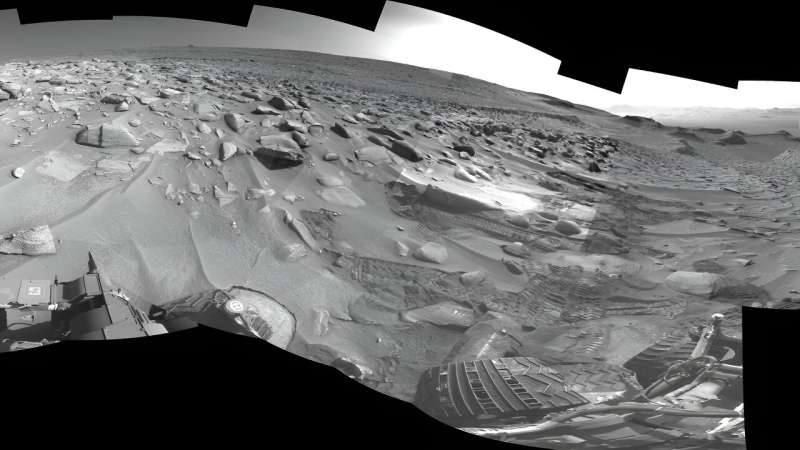
Copernical Team
NASA and Axiom Space join forces for fourth private mission in 2024
 In a renewed commitment to the growth of private space ventures, NASA has announced another joint mission with Axiom Space. This mission, which will be the fourth private astronaut initiative, is slated for a tentative launch in August 2024 from NASA's Kennedy Space Center in Florida.
Phil McAlister, Director of Commercial Space at NASA Headquarters, emphasized the significance of the join
In a renewed commitment to the growth of private space ventures, NASA has announced another joint mission with Axiom Space. This mission, which will be the fourth private astronaut initiative, is slated for a tentative launch in August 2024 from NASA's Kennedy Space Center in Florida.
Phil McAlister, Director of Commercial Space at NASA Headquarters, emphasized the significance of the join Indian lunar landing mission enters Moon's orbit
 India's latest space mission entered the Moon's orbit on Saturday ahead of the country's second attempted lunar landing, as its cut-price space programme seeks to reach new heights.
The world's most populous nation has a comparatively low-budget aerospace programme that is rapidly closing in on the milestones set by global space powers.
Only Russia, the United States and China have prev
India's latest space mission entered the Moon's orbit on Saturday ahead of the country's second attempted lunar landing, as its cut-price space programme seeks to reach new heights.
The world's most populous nation has a comparatively low-budget aerospace programme that is rapidly closing in on the milestones set by global space powers.
Only Russia, the United States and China have prev First test images from Euclid space telescope unveiled

The Euclid space telescope, launched July 1 on a mission to shed more light on elusive dark matter and dark energy, has reached its destination orbit and on Monday its European operators revealed its first test images.
The star-filled snapshots were taken during the space telescope's commissioning—a phase during which its powerful instruments are finely calibrated—and therefore not representative of its full potential.
But the European Space Agency (ESA) says the tests already show it will be capable of fulfilling its massive mission.
"After more than 11 years of designing and developing Euclid, it's exhilarating and enormously emotional to see these first images," Euclid project manager Giuseppe Racca in a statement.
VA261: Ariane 5 timelapse
 Video:
00:04:59
Video:
00:04:59
The 117th and final launch of Europe’s Ariane 5 rocket capped a series which began in 1996. Commercial, institutional and scientific payloads included such iconic missions as Rosetta, the James Webb Space Telescope and Juice. Seen here is the launch campaign for VA261 on 5 July 2023, to close the Ariane 5 book; onboard were German aerospace agency DLR’s Heinrich Hertz experimental communications satellite and French communications satellite Syracuse 4b.
NASA back in touch with Voyager 2 after 'interstellar shout'

NASA has succeeded in re-establishing full contact with Voyager 2 by using its highest-power transmitter to send an "interstellar shout" that righted the distant probe's antenna orientation, the space agency said Friday.
Launched in 1977 to explore the outer planets and serve as a beacon of humanity to the wider universe, it is currently more than 12.3 billion miles (19.9 billion kilometers) from our planet—well beyond the solar system.
NASA hears signal from Voyager 2 spacecraft after mistakenly cutting contact

Photos: The first supermoon in August rises around the world

If the world were coming to an end, what would be the most ethical way to rebuild humanity off-planet?

Last week, scientists announced that for the first time on record, Antarctic ice has failed to "substantially recover" over winter, in a "once in 7.5-million-year event." Climate change is the most likely culprit.
Petra Heil, a sea ice physicist from the Australian Antarctic Division, told the ABC it could tip the world into a new state. "That would be quite concerning to the sustainability of human conditions on Earth, I suspect."
And in March, a senior United Nations disarmament official told the Security Council the risk of nuclear weapons being used today is higher than at any time since the end of the Cold War.
Both warnings speak to concerns about Earth's security. Will our planet be able to support human life in the future? And if not, will humanity have another chance at survival in space?
'Billionauts' and how to choose who goes
Over the past few years, we've witnessed the rise of the "billionaut." The ultra-wealthy are engaged in a private space race costing billions of dollars, while regular citizens often condemn the wasted resources and contribution to global carbon emissions.
Most Americans support NASA but don't think it should prioritize sending people to space

Most Americans (69%) believe it is essential that the United States continue to be a world leader in space. But only a subsection of that group believes NASA should prioritize sending people to the moon, according to a new report released by the Pew Research Center. The study surveyed over 10,000 U.S. adults on their attitudes toward NASA and their expectations for the space industry over the next few decades.
As scholars who study international relations in space and the history of the space program, we are interested in understanding how Americans view space activities, and how their perspectives might affect the future of both U.S. and global space developments.
US dominance in space
The United States' most visible effort to maintain world leadership in space is arguably its Artemis Program to land humans on the moon by late 2024.
Curiosity rover faces its toughest climb yet on Mars

On Aug. 5, NASA's Curiosity rover will notch its 11th year on Mars by doing what it does best: studying the Red Planet's surface. The intrepid bot recently investigated a location nicknamed "Jau" that is pockmarked with dozens of impact craters. Scientists have rarely gotten a close-up view of so many Martian craters in one place. The largest is estimated to be at least as long as a basketball court, although most are much smaller.
































